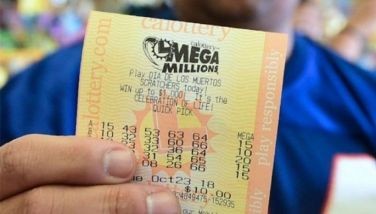RP economy slowing earlier than expected – Deutsche Bank
Deutsche Bank said the country’s economy was slowing earlier and more sharply than expected, raising concerns over the reliability of the reported growth in manufacturing and overall economic data.
Deutsche Bank said the increasingly frequent and meaningful revisions of the official numbers made it likely that the second quarter national income accounts could be adjusted downward in the coming months.
Although the market had already priced in some economic weakness, the peso could get further beating because the market would ultimately price in the fact that this weakness was worse and sharper than expected.
Deutsche Bank pointed out that there had already been three revisions to the 2007 third quarter national income accounts and more recently, the National Statistics Coordination Board (NSCB) revised the first quarter 2008 growth report from 5.2 percent to only 4.7 percent.
The adjustment in the first quarter 2008 gross national product was even more significant from 7.3 percent to 5.8 percent.
“By inference, there is danger in reading too much into this or any analysis,” said Deutsche Bank’s Global Markets Research strategist Anton Periquet.
The national income account is the detailed report on the country’s economic performance, tracking production, expenditures, supply and demand and trade, among other things.
The national income accounts track the movement in the gross domestic product (GDP) which summed up the country’s production of goods and services and the gross national product (GNP) which included income from abroad such as export receipts and remittances.
Periquet pointed out that the reported growth in manufacturing was not consistent with the bottom-up observation. “In our view, [it] needs revalidation,” he said.
The services sector which had been the lead sector in production, expanded by only 4.3 percent, offset by a 6.1-percent growth in manufacturing.
But Periquet pointed out that the official data showed food manufactures rising by 12.7 percent while beverage industries grew by 17.6 percent.
“Why manufacturers would have ramped up production at such a torrid pace in the middle of a food crisis and with the prospect of a slowing economy is puzzling, to say the least,” Periquet said.
It was during the second quarter that rice prices soared to historical highs as a result of a miscalculated announcement by the Department of Agriculture that the country was short of supply and intended to import from the global market where it was the biggest buyer.
On the whole, however, Periquet said that the second quarter GDP growth was below general expectations, with personal consumption expenditures growing by 3.4 percent compared with the long term trend of about five to six percent.
Capital formation grew by 14.7 percent but Periquet said more than half of this growth was from inventory build up. Investment in durable equipment rose by only 4 percent which he said suggested that the economy’s productive capacity was lagging overall growth.
Periquet also pointed out that exports were threatened by slowing global growth and imports—typically a lead indicator—fell by 4.5 percent during the period.
Periquet said that while the latest data suggested a wave of downgrades in macro-economic estimates, market valuations also suggested that investors were already ahead of the curve and had already priced in the weak economy.
- Latest
- Trending






























